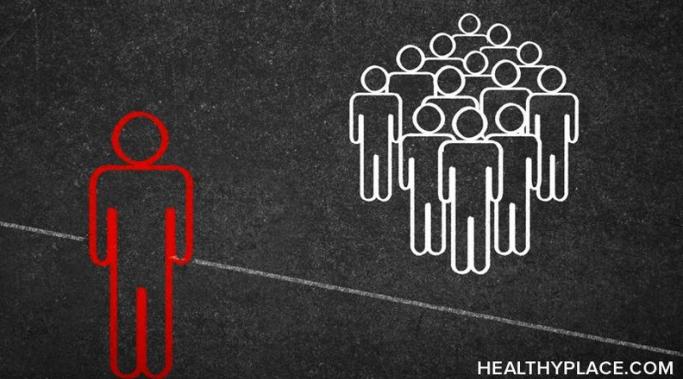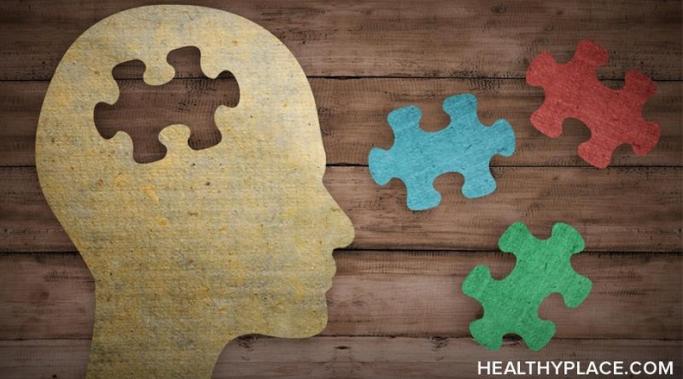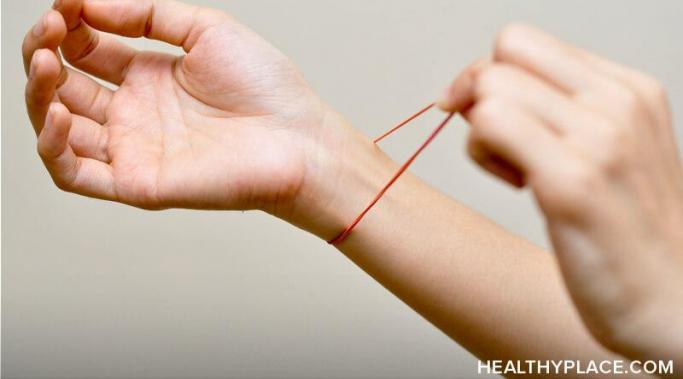Self-harm relapse can happen to anyone, whether you've been self-harm-free for one day or 100 days. Being zero days clean from self-harm doesn't mark the end of your healing journey. If you keep calm and take things one step at a time, you can—and will—be able to move on from this detour and continue with your self-harm recovery.
Speaking Out About Self Injury
May is Mental Health Awareness Month, and we've almost reached the end of it. Each year, I see more and more people opening up about their struggles, encouraged by themed conversations on social media and beyond. However, I feel self-injury is particularly difficult to talk about publicly, so self-harm stigma is still going strong. Why are people so afraid of self-harm?
I am not a licensed therapist or medical professional; I cannot tell you how to use cognitive behavioral therapy (CBT) for self-harm recovery. But I hope that, by sharing my own experience, I can help you decide whether it is an option you should investigate further for self-harm recovery.
Most people associate self-harm with self-imposed physical injuries that can be seen on the surface of one's skin. However, self-injury can come in many other forms and include behaviors that are much more complex. For instance, some people may use binge eating as self-harm, or they may struggle with an eating disorder like anorexia or bulimia that fuels their self-injury.
As a self-harmer, you can easily become convinced that choosing to hurt yourself, rather than others, is the right thing to do. But if there's one thing I learned from my own self-harm experiences, it's that hurting yourself to help others rarely works out the way you hope it will.
Narcissism and self-harm may not seem like an obvious pair. After all, most narcissists think extremely highly of themselves, so engaging in self-injurious behaviors might seem like a counter-intuitive action. However, there is a form of narcissism where self-harm is more prominent, and some might even use it to manipulate their victim.
Finding the right self-harm psychology tools is vital for creating a sustainable path forward into long-term recovery. Today, I want to share a few of the tools that I've personally found particularly useful over the years.
Music can be an excellent tool to regulate and process difficult emotions. It can also serve as a self-harm distraction and a temporary escape into a world of sounds and rhythm. Research also suggests that music can help you develop greater self-awareness, which is essential for long-term self-harm management.
Self-harm causes are hard to define. After all, each person is unique, and so is their emotional pain. However, the way we cope with difficult situations as adults often corresponds to our childhood experiences. Learning about the so-called early maladaptive schemas could help us address some of the unresolved issues that drive us toward self-injury.
It's easy to write off jewelry—of any kind—as a frivolous fashion statement, pretty but shallow. In the case of self-harm recovery jewelry, however, the meaning runs much deeper than that.









